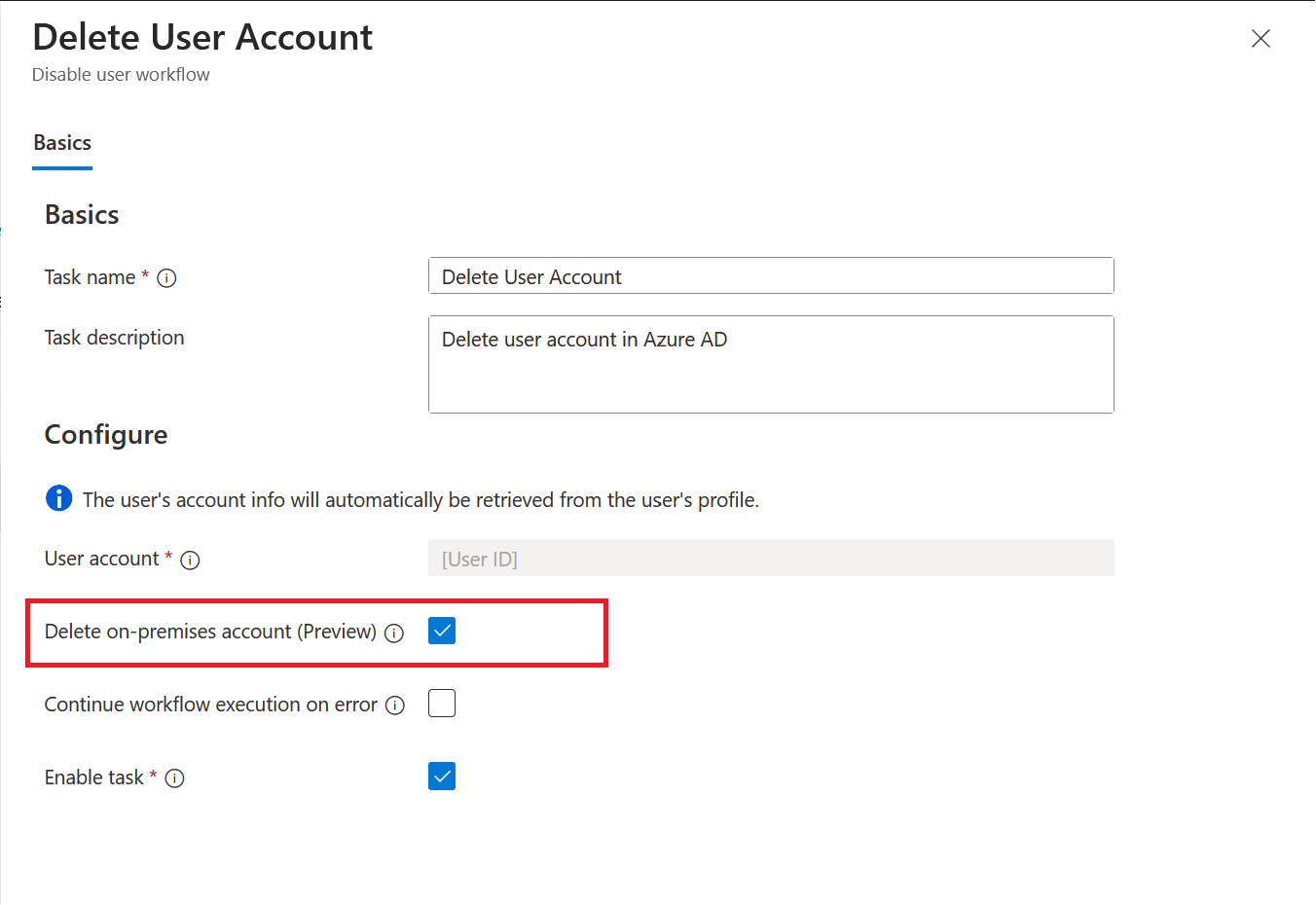Manage synced on-premises users with workflows (Preview)
Workflows created by Lifecycle workflows can be used to manage the lifecycle of synced on-premises users. Synced on-premises support allows you to use workflow tasks to enable, disable, and delete users. In this article, you're walked through the steps of enabling a user account task to be run for a synced on-premises user.
Prerequisites
Using this feature requires Microsoft Entra ID Governance licenses. To find the right license for your requirements, see Microsoft Entra ID Governance licensing fundamentals.
While most Lifecycle workflow tasks can manage synced on-premises users without any extra configuration, enabling,disabling, and deleting tasks require some additional configuration. For more information on setting these prerequisites, see: User account tasks (preview).
Configure a user account task to manage synced on-premises users using the Microsoft Entra admin center
Account related tasks within workflows can be quickly edited to apply to synced on-premises users. To edit a task in such way using the Microsoft Entra admin center, you do the following steps:
Sign in to the Microsoft Entra admin center as at least a Lifecycle Workflows Administrator.
Browse to Identity governance > Lifecycle workflows > Workflows.
Select the workflow you want to edit the task within.
On the workflow screen, select Tasks.
On the Tasks screen, either select an existing task you want to run for synced on-premises users, or create a new one by selecting Add task.
On the individual task screen, enable the checkbox that corresponds to running for an on-premises account. The following image shows it being enabled for a delete user account task.

Select Save.
Edit a user account task to be compatible with synced on-premises users using Microsoft Graph
To manage user tasks to be compatible with synced on-premises users via API using Microsoft Graph, see: Configure the arguments for built-in Lifecycle Workflow tasks.
Next steps
Feedback
Coming soon: Throughout 2024 we will be phasing out GitHub Issues as the feedback mechanism for content and replacing it with a new feedback system. For more information see: https://aka.ms/ContentUserFeedback.
Submit and view feedback for